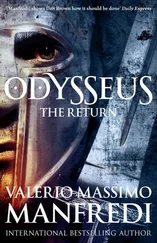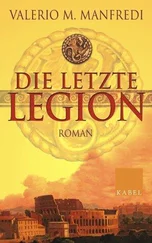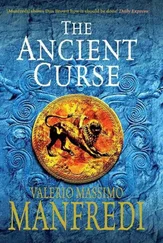‘Where are you headed?’ asked Anchialus when he had calmed a little.
The king raised flaming eyes. ‘To Argos,’ he said.
Anchialus looked at him in dismay. ‘To Argos?’ he said with a broken voice. ‘Oh, unhappy wretches! Don’t you know? I met refugees on the sea just yesterday, fleeing the city. Argos no longer exists.’
A stony silence fell over the ship, broken only by the sharp whistle of the wind.
‘To the oars!’ shouted the Chnan . ‘Men, to the oars! Reefs ahead!’
Myrsilus turned towards the little rocky islands, beaten now by huge billows rimmed with white foam, and then towards the cloud-dark sky. He shouted, as if out of his mind: ‘You gods have betrayed us! You will have no more suffering from us! You will have no more tears! To the oars, men! To the oars!’
The comrades exchanged glances and understood; they looked at the sky and at the boiling surf and they threw themselves at the oars, rowing with savage energy as Myrsilus gripped the helm forcefully, guiding them straight into the rocks. Diomedes understood as well and stood tall at the side of his pilot, firm against the fury of the storm.
Myrsilus yelled out at the top of his lungs to overcome the roar of thunder. He cried: ‘ARGOS!’ And his comrades echoed him, shouting with everything they had in them and making the surface of the sea boil with their oars.
The stern dipped down, pushed by the aft wind and by the force of one hundred arms and the ship rammed straight into the reefs. The keel crashed into the rocks and shattered; the ship rolled like a wounded whale, its stern shooting up and its bow going under. A gigantic wave smashed into the hull, already nearly dismembered by the terrible impact, and dragged it down into the abyss.
The storm raged on for many hours with huge billows, and the sky became blacker than night. It ceased only towards evening, when a cold ray of sun pierced through the grey clouds. A flock of seabirds rose up then from those desolate rocks. Among them was a great white-winged albatross which lifted above all the rest, higher and higher, letting out shrill shrieks of grief. He sailed through a rift in the clouds and was swallowed up by the darkness.
The foreigner finished his story thus, one evening at the end of winter. He left the day after, and we were never to hear of him again.
I’ve often asked myself who he was, really. Of all those who lived through those events, who could have had complete knowledge of all the facts? I have never been able to find an answer. Or perhaps I have never wanted to find one. Whoever he was, he had the right to oblivion, for destiny had forced him to live despite himself.
The last thing I remember about him were his eyes, when he turned to look at me before disappearing behind a curve in the road. They were no longer the eyes of a man. They were as empty and black as the circle of the new moon. There was nothing left inside of them, for he had given everything over to us: memories, pain, regrets, everything. Now he could finally look at the world as if he were no longer a part of it, as if he had long crossed the last horizon.












